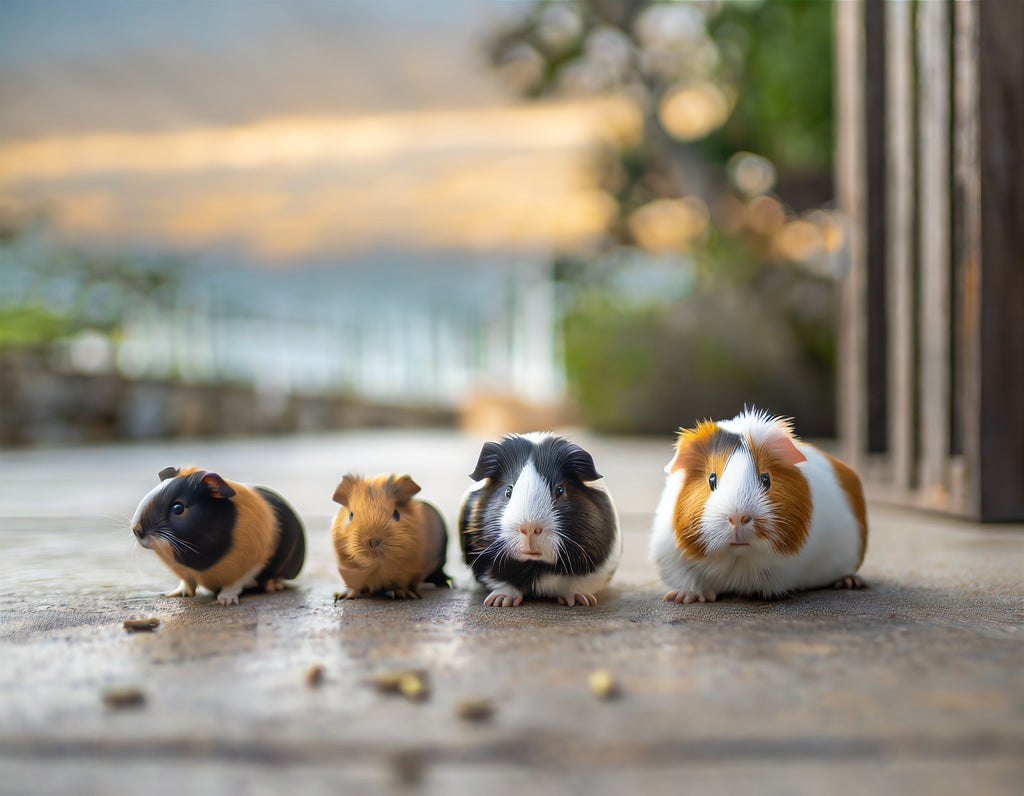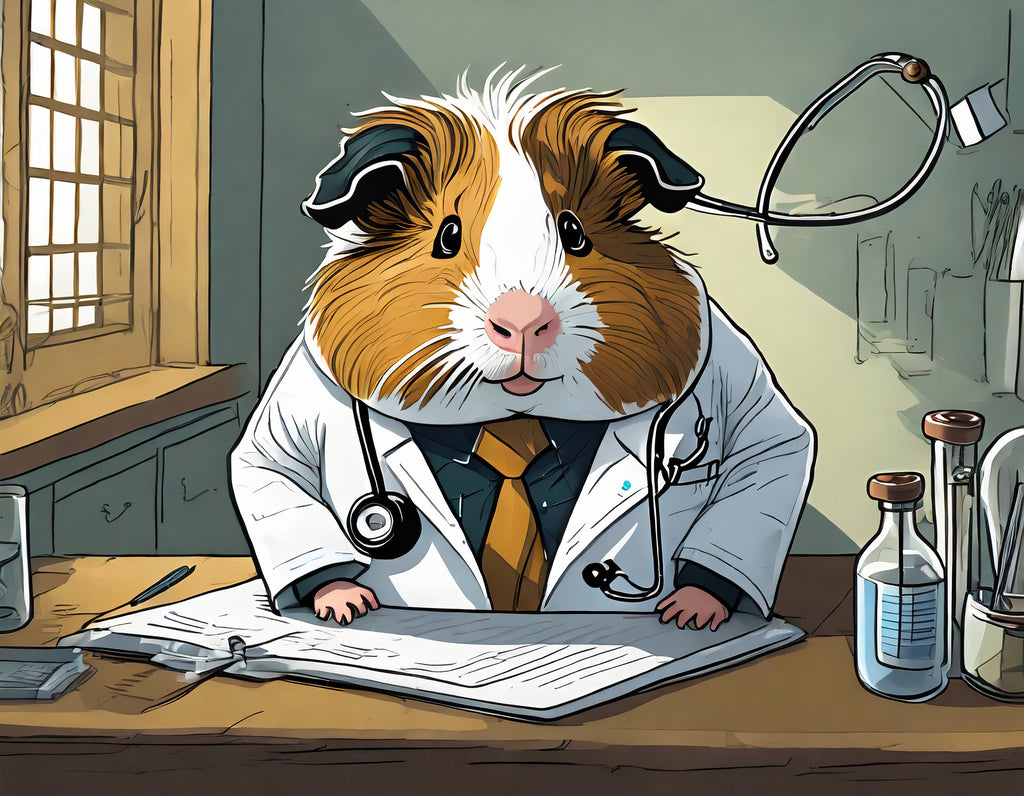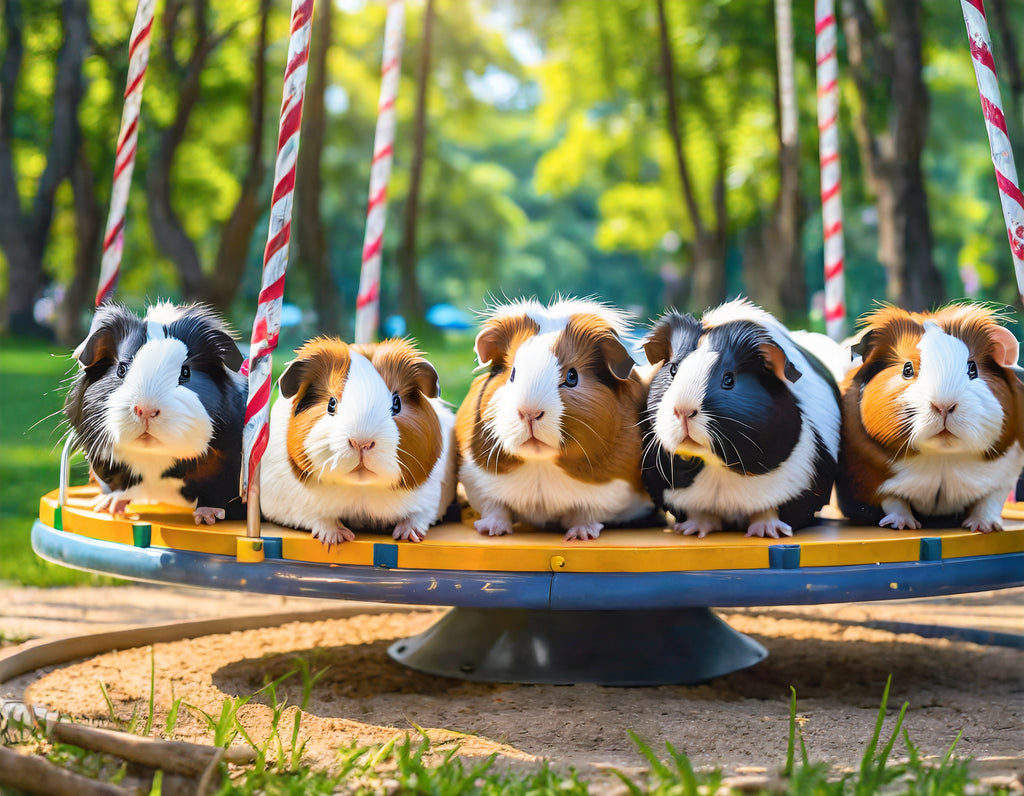The Lifespan of Guinea Pigs
How long do guinea pigs live?
This is a question that can easily be answered, but it is the details that really matter. 5 to 7 years and longer.

Guinea pigs have an average lifespan of 5 to 7 years, although some can live up to 10 years or even longer if provided with proper care. Understanding the different stages of a guinea pig's life is crucial in ensuring their well-being and longevity. Let's take a closer look at each stage to understand their unique needs.
Infancy (Birth to 6 months)
During this stage, guinea pigs are highly dependent on their mother for nourishment and protection. It's important to provide a safe and comfortable environment for the mother and her pups. Proper nutrition, including a balanced diet of hay, fresh vegetables, and pellets, is essential for their healthy development.
Adolescence (6 months to 1 year)
As guinea pigs reach adolescence, they become more independent and start to establish their hierarchy within a group. This is the stage where they are most active and playful, so providing them with plenty of exercise opportunities and social interaction is crucial.
Adulthood (1 to 4 years)
During adulthood, guinea pigs reach their peak physical condition. It's important to maintain a healthy diet and provide them with a spacious and stimulating living environment. Regular veterinary check-ups are recommended to detect any potential health issues early on.
Senior Years (4 years and older)
As guinea pigs enter their senior years, they may start to show signs of aging, such as reduced activity levels and dental problems. It's crucial to adjust their diet to accommodate their changing nutritional needs and provide them with extra comfort and care.
Factors that Influence Guinea Pig Lifespan
Several factors can influence the lifespan of guinea pigs. Understanding these factors can help you provide the best care possible for your furry friends. Here are some key factors to consider:
Genetics and Breeding
Genetics play a significant role in determining a guinea pig's lifespan. Certain breeds may be more prone to specific health issues or have longer lifespans compared to others. It's important to choose a reputable breeder and consider the breed's average lifespan when adopting a guinea pig.
Diet and Nutrition
A balanced diet is crucial for the overall health and longevity of guinea pigs. Their diet should consist primarily of hay, fresh vegetables, and high-quality pellets. Avoid feeding them excessive amounts of sugary or fatty foods, as this can lead to obesity and other health issues.
Exercise and Enrichment
Regular exercise is essential for guinea pigs to maintain a healthy weight and prevent boredom. Providing them with a spacious enclosure and stimulating toys can help keep them mentally and physically active. Ensure they have plenty of opportunities to explore and play to promote a longer and healthier life.

Living Environment
A clean and stress-free living environment is crucial for guinea pigs' well-being. Avoid exposing them to extreme temperatures or drafts, as this can lead to respiratory problems. Regular cage cleaning, proper bedding, and sufficient ventilation are essential for maintaining a healthy environment.
Guinea Pig Care and Nutrition
We wrote a little more detail on cavy care and nutritional needs over here, but here are the highlights.
Diet
The majority of a guinea pig's diet should consist of high-quality hay, such as Timothy hay, which helps maintain healthy digestion and wear down their constantly growing teeth. Fresh vegetables, such as leafy greens, carrots, and bell peppers, should also be provided daily. Additionally, guinea pig pellets can be given in moderation to supplement their nutritional needs.
Hydration
Fresh and clean water should be available to guinea pigs at all times. Use a water bottle with a sipper tube to prevent contamination and ensure a constant supply of water.

Exercise and Enrichment
Guinea pigs are active animals that require regular exercise to prevent obesity and keep their minds stimulated. Provide them with a spacious enclosure where they can explore and play. Adding tunnels, chew toys, and hiding spots can also keep them entertained.
Social Interaction
Guinea pigs are social animals and thrive in the company of their own kind. Consider adopting a pair or group of guinea pigs to provide them with companionship. Regular handling and gentle interaction with humans are also important for their socialization.
Common Health Issues in Guinea Pigs
Guinea pigs are generally hardy animals, but they are prone to certain health issues. Being aware of these common problems can help you detect and address them early on. Here are some of the most common health issues in guinea pigs:
Dental Problems
Guinea pigs' teeth continuously grow throughout their lives, so dental issues are relatively common. Overgrown teeth, malocclusion, and tooth root abscesses can cause pain, difficulty eating, and other complications. Regular veterinary check-ups and a proper diet can help prevent these problems.
Respiratory Infections
Guinea pigs are susceptible to respiratory infections, especially if exposed to drafts or damp environments. Symptoms include sneezing, coughing, difficulty breathing, and nasal discharge. Prompt veterinary care is essential to prevent further complications.
Skin Problems
Skin conditions, such as mites, fungal infections, and abscesses, can occur in guinea pigs. Regular grooming, providing clean bedding, and maintaining a clean living environment can help prevent these issues.
Urinary Tract Problems
Urinary tract infections and bladder stones can occur in guinea pigs, causing discomfort and pain. Ensuring a balanced diet and providing them with plenty of fresh water can help prevent these problems.
Signs of Aging in Guinea Pigs
As guinea pigs age, they may start to show certain signs of aging. Being aware of these signs can help you provide the necessary care and attention to ensure their comfort and well-being. Here are some common signs of aging in guinea pigs:
Reduced Activity Levels
Senior guinea pigs may become less active and spend more time resting. It's important to provide them with a comfortable and cozy area where they can relax without being disturbed.
Weight Loss
Weight loss is a common sign of aging in guinea pigs. Monitor their weight regularly and consult a veterinarian if you notice a significant change.
Dental Problems
As guinea pigs age, their teeth may become more prone to dental issues. Regular dental check-ups and providing them with appropriate chew toys can help prevent complications.
Changes in Appetite and Digestion
Senior guinea pigs may experience changes in their appetite and digestion. Monitor their eating habits and consult a veterinarian if you notice any significant changes or signs of discomfort.
Extending the Lifespan of Guinea Pigs
While genetics play a significant role in determining a guinea pig's lifespan, there are several steps you can take to extend their life expectancy. Here are some ways to promote a longer and healthier life for your furry friend:
Provide a Balanced Diet
A balanced diet is crucial for guinea pigs' overall health and longevity. Ensure they have access to fresh hay, vegetables, and high-quality pellets. Avoid feeding them excessive amounts of sugary or fatty foods.
Encourage Regular Exercise
Guinea pigs need regular exercise to maintain a healthy weight and prevent obesity. Provide them with a spacious enclosure where they can explore and play. Adding tunnels, ramps, and toys can also keep them active and engaged.

Regular Veterinary Check-ups
Regular veterinary check-ups are essential to detect and address any potential health issues early on. A veterinarian can provide guidance on proper nutrition, dental care, and overall well-being.
Maintain a Clean Living Environment
A clean and stress-free living environment is crucial for guinea pigs' well-being. Regular cage cleaning, proper bedding, and adequate ventilation can help prevent respiratory and skin problems.
Guinea Pig Breeds and Lifespan Variations
Different guinea pig breeds can have variations in lifespan. While the average lifespan is around 5 to 7 years, some breeds may live longer or shorter lives. Here are some popular guinea pig breeds and their average lifespans:
| Breed | Average Lifespan |
|---|---|
| Skinny | 7 - 8 years |
| White | 5 - 8 years |
| Silkie | 5 - 8 years |
| Peruvian | 5 - 8 years |
| Himalayan | 5 - 8 years |
| Abyssinian | 5 - 7 years |
| Abyssinian Satin | 4 - 6 years |
Guinea Pig Lifespan Myths and Misconceptions
There are several myths and misconceptions surrounding guinea pig lifespans. Let's debunk some of the most common ones:
Guinea Pigs Only Live for a Few Years
While it's true that guinea pigs have relatively short lifespans compared to some other pets, they can live up to 8, 10 years or longer with proper care.
Male Guinea Pigs Have Shorter Lifespans than Females
There is no scientific evidence to support this claim. Both male and female guinea pigs can live equally long lives if provided with the same care and attention.
Guinea Pigs Don't Need Veterinary Care
Regular veterinary check-ups are essential to ensure the overall health and well-being of guinea pigs. A veterinarian can provide guidance on nutrition, dental care, and detect any potential health issues early on.
Guinea Pigs Can't Live Alone
While guinea pigs are social animals, they can live alone as long as they receive ample human interaction and stimulation. However, providing them with a companion of the same species is generally recommended for their well-being.

Ensuring a Long and Happy Life for Your Guinea Pig
Guinea pigs bring joy and companionship to many households, and understanding their lifespan is crucial for providing them with the care they deserve. By considering factors such as genetics, diet, exercise, and living conditions, you can ensure a longer and happier life for your furry friend.
Remember to provide a balanced diet, regular exercise, and veterinary care to keep your guinea pig healthy and thriving. With proper care and attention, you can enjoy the company of your guinea pig for many years to come.
